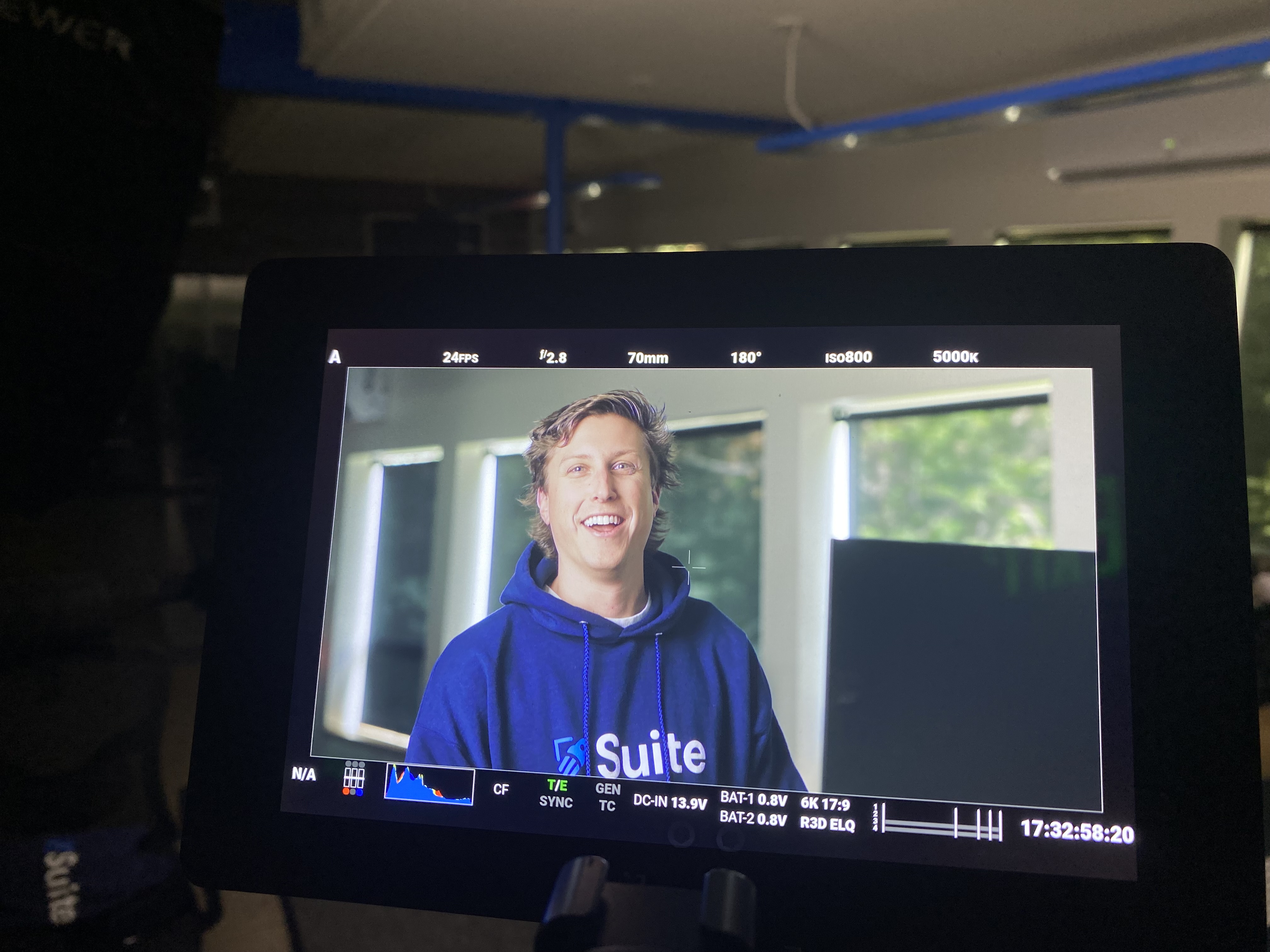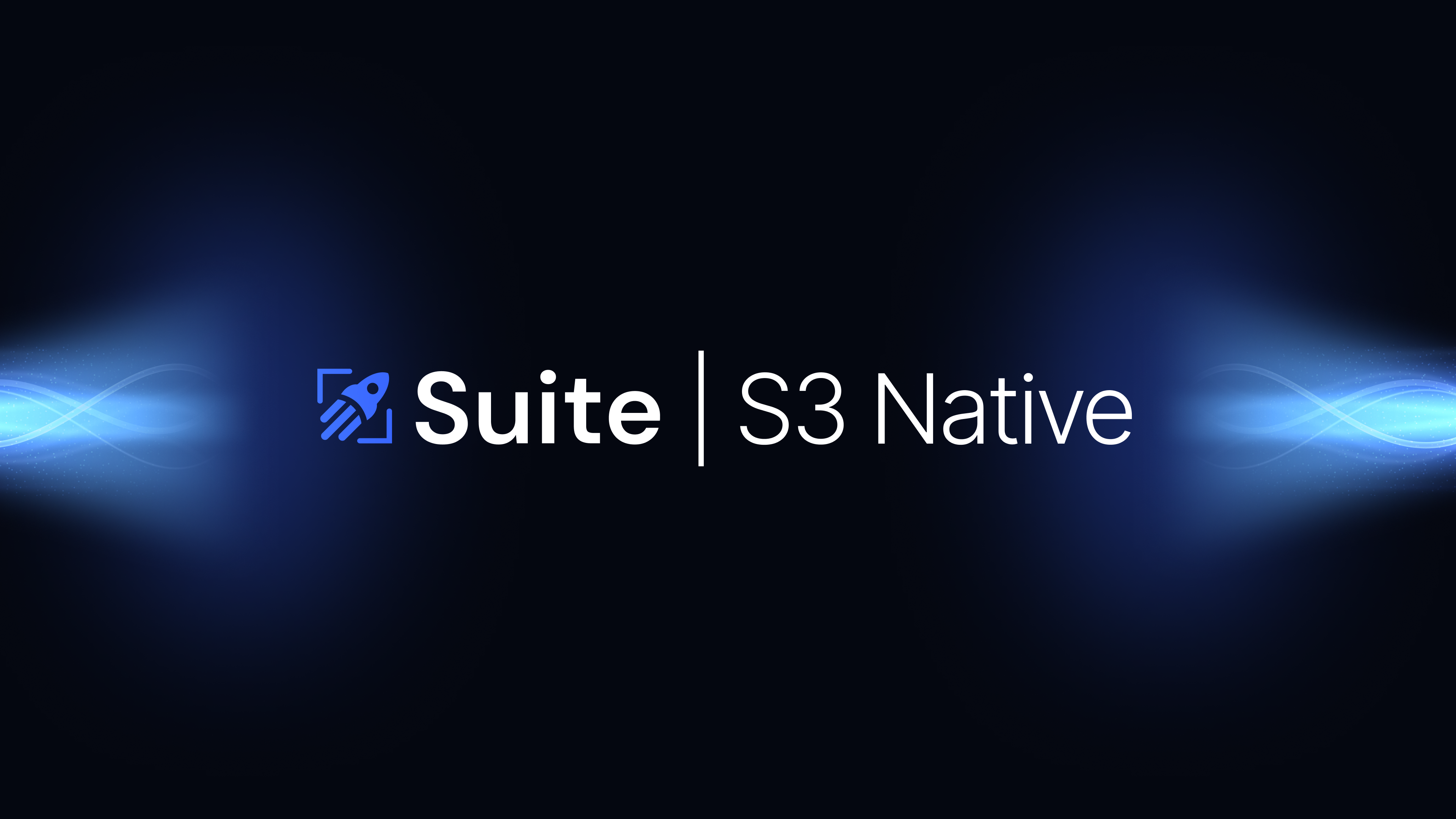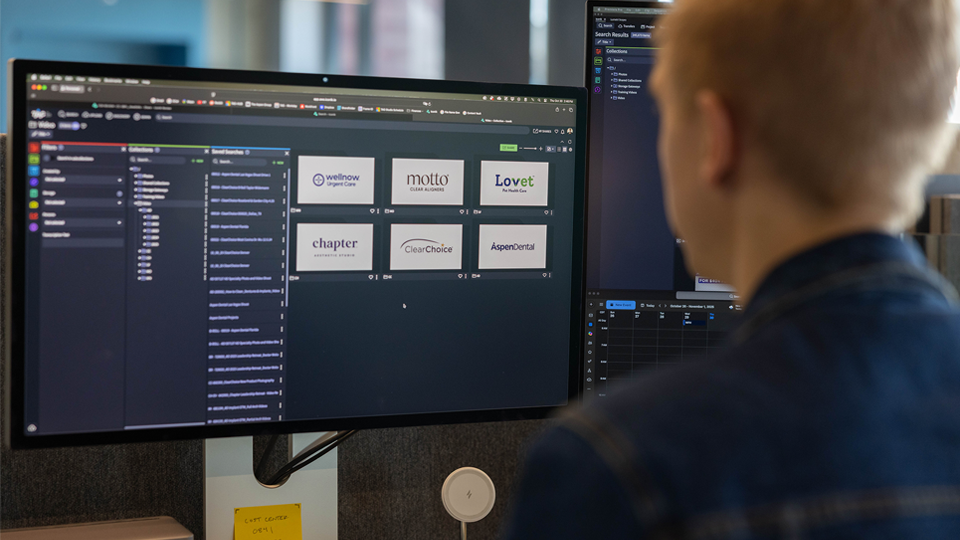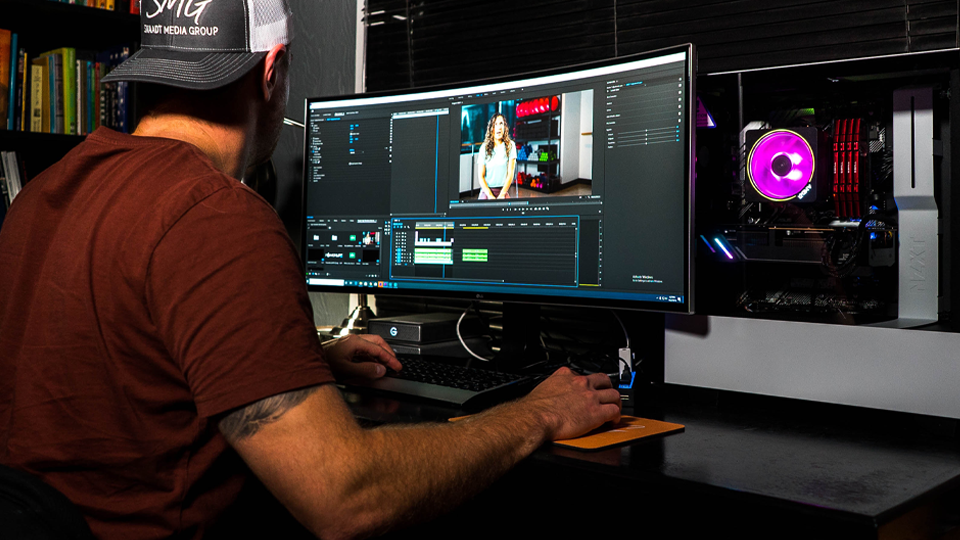Inside the studio: Marketing guru Michael Maher on balancing analytics, technology, and inspiration

Samuel Taggart

8 Minutes

Inside the Studio: Dive into insightful interviews that uncover the methods, challenges, and inspirations of today's leading filmmakers & artists straight from the studio. Discover the story behind the art on The Render.
Michael Maher’s creative mind just keeps spinning. He’s one of the marketing and content gurus behind Motion Bodega, a digital marketing agency that designs highly targeted multi-channel digital campaigns for a range of creative clients like Adobe, Blackmagic Design, School of Motion and Shutterstock. A filmmaker, film buff, father, writer, blog editor, master of social media strategy and overall content maestro, Maher has spent the last 20 years fine-tuning his artistic vision and analytical prowess behind the lines at a number of digital agencies and brands.
In this edition of Inside the Studio, Maher shares his approach to content creation, and how he balances his personal inspiration and creative efforts with the practical needs of clients. He emphasizes the importance of staying current with technology and tools, and urges creatives to strike a balance between using analytics and trusting your creative vision to craft strategies and content that resonates with audiences to maintain engagement over time.
Now, let’s dive into the mind Maher to learn more about the intersection of data, creativity, and the importance of innovation. Here, we’ll learn some of his most coveted “tricks of the trade,” pivotal insights on how to create content that endures, and why it’s always inspiring to dig into the movie vault and rediscover some of your favorite films.
How do you begin to concept a new idea, whether it’s a personal project or a client proposal?
Sometimes it’s driven by our own personal education, leaning back on our collective experience in filmmaking and cinematography. Even as creators today, we're having the same issues… we can't store enough footage or buy hard drives fast enough. Something we find [works well] is education-based training, learning whatever is new, testing new software, like diving into virtual production. On the flip side, it's solving all of the creative problems for our clients. Many of them come to us asking to make a video, and we go through the process to find out the end goal.
Is there a formula to nailing the right content, or is it a new process every time?
I look into all the analytics I can get my hands on about a client and their website, examining the customers, the channels those people are watching online, the social accounts they follow, and other things like that. We help [our clients] figure out the best approach to speaking to their audience. Even if you're having success with a certain type of content, that dries up. We try to inspire audiences so they keep coming back.

How much of a role does data play in shaping your strategy?
I've become an analytics nerd over the past few years. My first introduction to Google Analytics [taught me] where traffic originated, what types of articles the audience read, how the audience engaged with the site. Today, at least half to three-quarters of my work is still figuring out those details for my clients. On the other flip side, though, you still have to have create something new. You can't just fall down the rabbit hole. I use data, but only up to a point.
As a creative, what’s the importance of maintaining that “finger on the pulse” mindset?
I'm driven by the things that inspire me, and collectively we're always looking out to see if there new tools that solve problems we have. It's always been a waiting game. You were always waiting for somebody to create a new tool that solves all your problems; something you could plug-and-play into a system you already had in-place. Now, that's happening so much faster, where tools can become outdated within months instead of years. There's a lot of people fighting to create the same kinds of things; you just have to keep up with what's working and what’s not.
What are some of your biggest “do's and don’ts” of content creation?
Most of the time it's challenging ourselves, asking “Can we make something new?” There's also that element of “Steal Like An Artist.” You can always just be inspired by something, take a spin on it, remake it, and make it your own.

How has your view on storytelling evolved over your 20 years in the industry?
With all creative fields, there's things that always stay the same. The tools you use become like Second Nature. And the skills and the inspiration you pick up over the years—you don't often realize how they’ll pay off in the future. So you can't just be focused on one thing. You have to take bits and pieces from all over—pulling inspiration from paintings, photography, movies, or wherever. You have to lean into the things that inspire you.
What advice would you give to up-and-comers in the film & content creation space?
Just keep learning. There's nothing better you can do—experimenting creatively is the only thing that keeps you sane. And it's the only way to prevent you from making the same content. You don't want to be someone who's known for that “one thing.” I've seen that happen, and when people fall into that rut they either cash out or burn out.

In this digital age, how do you sift through and find the content that endures?
I have three kids, and we're at the point where we have a weekly movie night. It’s the most fun when I get to go into the vault, so I’ve been thinking more about the movies I want to introduce my kids to, like classics and animated films. For me, it's reliving the movies and shows that I used to watch as a kid. When you start diving deeper, I'm realizing there's even older stuff I didn’t know existed...
My favorite thing about the DVD-era were the bonus features. I loved seeing behind the scenes, but I especially loved the director commentary. If there's a director I really like, I look for interviews or behind the scenes featurettes. I want to know what their favorite movies were. Then, I go back and I hunt those movies down and watch ‘em. I'm a big Letterboxd fan—it's essentially like Goodreads for movies, and people make these awesome lists and recommendations. There's really good stuff out there—you just have to go find it.



































